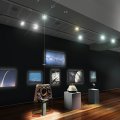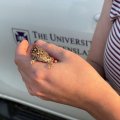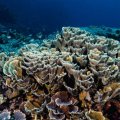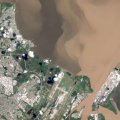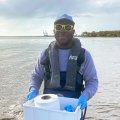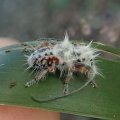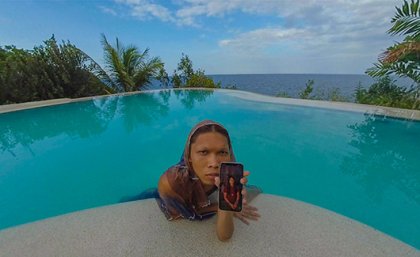
Exploring storytelling across oceans, generations and cultures is the subject of a new UQ Art Museum exhibition opening this month.
Exhibition curator Isabella Baker said How we remember tomorrow engaged 14 artists to tell stories drawing attention to the ways in which waters and seas are vital elements to the future of all species.
“These works use song, voice, gesture, motif, whisper and form to give vital accounts, perspectives and retellings,” Ms Baker said.
The title of the exhibition is drawn from featured artist Shivanjani Lal’s 2023 artwork Aise Aise Hai (How we remember), which explores the lives of indentured labourers who were forcibly sent to Queensland in the late 1800s.
“This work features a field of 87 sugarcane stalks, referencing the number of boats that transported more than 60,000 people from the British colonies of India to Fiji to work on sugarcane plantations,” Ms Baker said.
“Lal’s work is an example of how truth-telling can lay the foundation for a more resilient and informed future.
“These themes are also explored in Brisbane-based artist Jasmine Togo-Brisby’s film Mother Tongue, which brings together three generations of Australian South Sea Islander women: the artist, her mother, and her daughter.”
UQ Art Museum Director, Peta Rake said the storytelling displayed in the exhibition was multidimensional.
“Audiences will encounter artworks that tell stories connecting vast distances, pinpointing the similarities in global and local experiences of ancestry, knowledge and proposed futures," Ms Rake said.
“The work of Tongan and Fijian scholar and author, the late Epeli Hauʻofa, and his text ‘Our Sea of Islands,’ considers Indigenous notions of time, with the past directly in front, and the future behind.”
Other works include Lisa Reihana’s film GROUNDLOOP, which will have its Queensland premiere at the exhibition.
Commissioned by the Art Gallery of New South Wales, the film charts voyages across Te Tai-o-Rēhua (Tasman Sea) and encounters between Māori and First Nations people, and predicts a future sustained by First Nations technologies, cultural knowledge, kinship and care for Country.
How we remember tomorrow is the fourth exhibition presented as part of UQ Art Museum’s Blue Assembly project, in partnership with UQ’s Centre for Marine Science.
The exhibition opens 13 February and continues until 15 June.
A series of free public programs and events will accompany the exhibition.
Media contact
Anna Hickey
anna.hickey@uq.edu.au
+61 408 886 681
Media assets
View the media kit for this exhibition.


